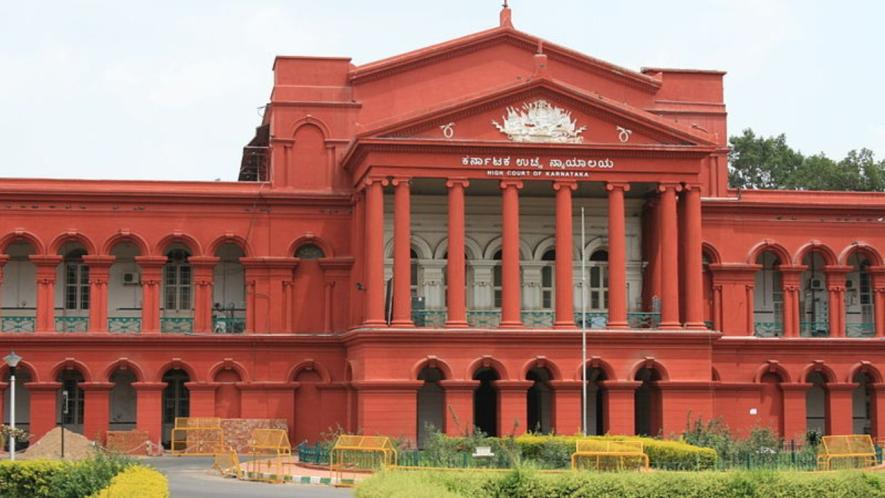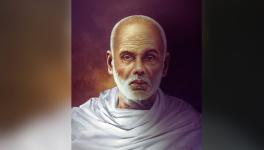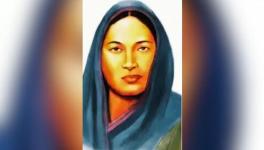Your Honour, the Rot Runs Really Deep!

High Court of Karnataka. Image Courtesy: Wikimedia Commons
‘Indians today are governed by two ideologies. Their political ideal set in the preamble of the constitution affirms a life of liberty, equality and fraternity whereas their social ideal embedded in their religion denies it to them.’
(Ref: Ambedkar: Life and Mission – Dhananjay Keer, Page 456, Popular Prakashan, 1990, Mumbai)
Justice Srishananda of the Karnataka High Court is in the news for wrong reasons.
What has caused tremendous unease is the way he openly referred to a Muslim-majority area in Bengaluru as "Pakistan" during a hearing and even made a misogynistic comment involving a woman lawyer.
The open display of prejudice toward a community and gender -- by someone who is supposed to uphold the Constitution -- infuriated a wide cross-section of people. A five-judge bench of the Supreme Court led by Chief Justice Chandrachud also lost no time in condemning these highly irresponsible remarks and asked the Karnataka HC to submit a report in this connection.
The matter will be addressed within two days and the highest court is also keen to issue guidelines for constitutional court judges regarding their remarks in the courts.
The SC's quick intervention in the Karnataka case is definitely a welcome development.
The question arises whether establishing such clear guidelines would really prove a dampener to such utterances in courts in future? Would it really put a stop on judges who have had no qualms in declaring that ''based on religion, India should have been declared Hindu nation after independence.' or declaring 'Modi a model and a Hero'.
Second, would it be a guarantee that similar controversial remarks will not be made by sitting judges on public fora.
One can recall how the then Kerala High Court judge Chitambaresh had extolled the virtues of the 'twice borns', namely Brahmins, and also suggested to them to take up a fight against reservation -- as it exists today -- and fight for economic reservation or how then SC judge Abdul Nazeer sang paeans to Manusmriti as well as 'other legal giants of ancient India' whose supposed neglect proved “detrimental to the goals of our Constitution and against our national interest”.
This despite knowing fully well the struggles of the social emancipation movement led by Ambedkar, Periyar and others against the edicts of the Manusmriti or how Ambedkar -- who was Chairman of the Drafting Committee of the Constitution --had famously declared while dedicating the Constitution to the people of India that 'we have now ended the rule of Manu'.
May be less known is the fact that Ambedkar had publicly burnt Manusmriti along with thousands of his followers for being a 'gospel of counterrevolution'. (December 1927) (Mahad: The Making of a First Dalit Revolt, Anand Teltumbde, Routledge)
No doubt, there is no guarantee that mere issuance of guidelines would suddenly become a wake-up call for all these judicial officers -- from the top to the bottom.
The fact is that such utterances or 'objectionable comments' by high-level judicial officers can also be construed as manifestation of a deeper malaise in the system at all levels, weakening of the guardrails of democracy, which is manifested at the level of polity, executive also.
Would someone have ever imagined that the Prime Minister of a country like India -- which calls itself secular, democratic, socialist and sovereign -- would come under the scanner of human rights organisations for making Islamophobic comments during elections or there will be increasing talk of weaponising of Institutions etc.
An indication of this malaise can be had from the way many judicial officers -- of the rank of judge of the High Court -- were found either joining the ruling Bharatiya Janata Party (BJP) or suddenly start singing paeans to BJP, RSS (Rashtriya Swayamsevak Sangh) in recent times -- despite knowing very well the world view of these organisations. Much has been written about how RSS had great discomfort with the making of the Constitution and how it opposed its making in very many ways.
Read Also: The Unending Discomfort of RSS With the Constitution
Take the case of Abhijit Ganguly, a judge of the Calcutta High Court, who was popular for his anti-Trinamool Congress verdicts, who announced joining the BJP on his last working day and was even elected as an MP on BJP's ticket.
Or one can discuss the case of Rohit Arya, Judge of the Madhya Pradesh High Court, who had denied bail to comedian Munawar Faruqui, which was later set aside by the Supreme Court. Arya joined the BJP within three months of his retirement.
The rapidity with which these people joined BJP or openly started displaying their fascination for RSS compelled a look at their earlier judicial decisions, which were found to be wanting at many levels.
One can also discuss the recent meet of Vishwa Hindu Parishad (VHP) where more than 30 retired judges of the Supreme Court as well as High Courts gathered to discuss the issues of Waqf Property and other exclusivist agenda of the Sangh Parivar. The VHP meet was even addressed by Union Law Minister Arjun Ram Meghwal.
While the exact list of the retired judges present at the event was not released, the presence of two retired SC judges was widely noted. One of them was Hemant Gupta, who had upheld the Karnataka hijab ban and the other was former SC judge Adarsh Kumar Goel, who went on to serve as the National Green Tribunal chairperson after his retirement from the court in 2018 till last year. He was a key architect of the controversial SC judgement that had tried to dilute the historic SC/ST Act, which had given rise to a massive uproar and a huge mass movement, which ultimately compelled a review of the judgement.
The impunity and audacity with which controversial remarks are made by leading lights of the polity, or at times of the judiciary, just goes to show the increasing hiatus that is unfolding before us between the principles of the Constitution and its values and their implementation at the ground level. Perhaps, we as a nation, as a people, are still far away from inculcating what Ambedkar termed as ‘constitutional morality’.
“Constitutional morality is not a natural sentiment. It has to be cultivated. We must realise that our people have yet to learn it. Democracy in India is only a top-dressing on an Indian soil which is essentially undemocratic.”?
B.R. Ambedkar, Annihilation of Caste.
No doubt, this is not a one-day affair and can't be merely blamed on the decade-old ascent of supremacist forces and ideas at the Centre, but it needs to be noted that their ascent has slowly made hate-mongering more respectable, more normal.
Take the recent case of the appointment of Justice Victoria Gowri to the Madras High Court, who was once a BJP member and was facing accusations for making hate speeches against religious minorities. Despite the SC collegium, which was tasked to elect judges, receiving signed petitions from advocates and legal scholars voicing their strong opposition to confirm Gowri as judge because of her alleged hate speeches, the Collegium refused to pay heed to their concerns. It plainly said that it can't object to judgeship merely because of their views held as lawyers.
Such 'controversial' utterances are important but there can be cases where a very mild-mannered judge, who never speaks her/ his mind, can help peddle the same exclusivist understanding through the judgements delivered or even help in deferring decisions on cases that are inconvenient to the ruling dispensation.
What former Bombay HC judge Justice Hosbet Suresh had prophesised around a decade ago is worth underlining here: 'There is a general fear that the judiciary could be “saffronised” in the years to come... There is an apprehension that in the course of time, if a large number of people of this kind of thinking are appointed as judges at the higher level, what might happen."
It is easy to see that the ruling dispensation at the Centre has established complete hegemony over the polity and executive. It knows very well that unless and until complete hegemony is established over the judiciary, the possibility will always exist that it will act as a dampener to this government’s attempts to completely undermine the Constitution and usher in a Hindu Rashtra.
A glimpse of how the BJP government is surreptitiously engaged in doing this internally, can be had by listening to Dr Mohan Gopal, an advocate and legal academician. In a lecture, he tells us about how, with the ascent of BJP at the Centre, “The Number of Theocratic Judges Who Find Source Of Law In Religion Than Constitution’ has increased:
"An increase in traditionalist/ theocratic judges - as it happened in Modi led NDA regime is essentially part of two- part strategy to achieve the goal of establishing Hindu Rashtra by 2047, not by overthrowing the Constitution but by interpretation by the SC as a Hindu Document" (-do)
First step involves appointing judges who are ready to look beyond and the second phase which will now begin where judges will identify the source and it began with the Hijab judgement ...
..We can slowly reach a stage where we can say that India is a Hindu Theocracy under the same constitution- as reinterpreted by the SC , so the idea is to hijack the judiciary and establish a Hindu Theocracy (do-)
The outcome of the battle to maintain the judiciary’s independence and save it from interference by the executive will have long-term consequences for democracy in India.
Perhaps the Karnataka episode can be construed as a wake-up call.
The writer is a senior freelance journalist. The views are personal.
Get the latest reports & analysis with people's perspective on Protests, movements & deep analytical videos, discussions of the current affairs in your Telegram app. Subscribe to NewsClick's Telegram channel & get Real-Time updates on stories, as they get published on our website.
























